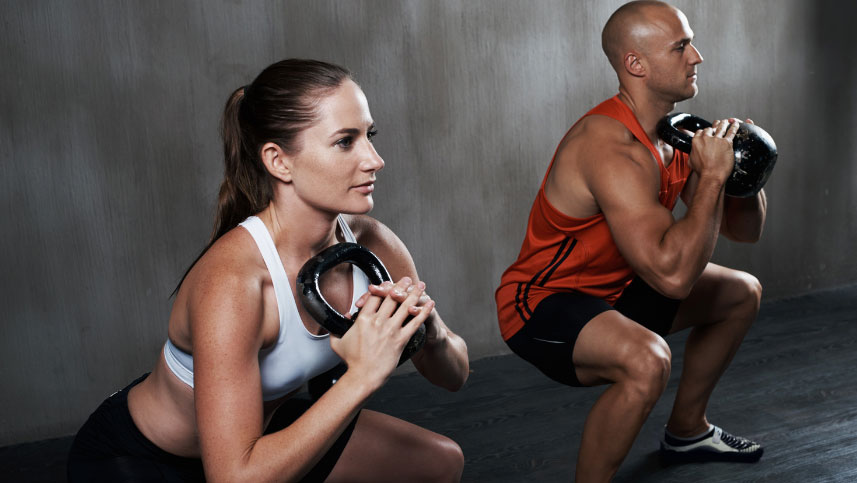Pelvic Floor Physiotherapy: A Vital Tool for Weightlifters’ Pelvic Health
Weightlifting is a physically demanding sport that pushes the limits of the human body. Athletes engage in rigorous training routines and competitions that require immense strength and endurance. However, while the benefits of weightlifting are numerous, it’s essential to acknowledge the potential impact on pelvic health. Incontinence, a common issue among weightlifters, can significantly affect an athlete’s performance and overall well-being. Fortunately, pelvic floor physiotherapy offers a solution to address these concerns and optimize athletes’ pelvic health.
Understanding Pelvic Health
Before delving into how pelvic floor physiotherapy can benefit weightlifters, it’s important to grasp the significance of pelvic health. The pelvic floor is a group of muscles, ligaments, and connective tissues that support the pelvic organs, including the bladder, rectum, and uterus. These muscles play a crucial role in maintaining continence, providing stability to the core, and facilitating sexual function. When the pelvic floor is compromised, issues like incontinence can arise.
Incontinence Among Weightlifters
Weightlifters, both novice and elite, often experience pressure on their pelvic floor during heavy lifts. This increased intra-abdominal pressure can lead to stress urinary incontinence, a condition where urine leakage occurs during activities like lifting, jumping, or coughing. The repetitive stress on the pelvic floor, coupled with improper lifting techniques, can weaken these muscles over time. As a result, weightlifters are at a higher risk of developing pelvic floor disorders, including incontinence.
Incontinence can have a profound impact on an athlete’s training regimen and overall quality of life. The fear of leakage during workouts may lead to anxiety and embarrassment, causing athletes to limit their training or avoid certain exercises altogether. This not only hinders progress in the sport but can also lead to a decline in physical and mental well-being.
The Role of Pelvic Floor Physiotherapy
Pelvic floor physiotherapy is a specialized form of physical therapy designed to address pelvic floor dysfunction. It involves the assessment and treatment of pelvic floor muscles to improve their strength, endurance, and coordination. This therapy is not only for individuals with existing pelvic floor issues but can also serve as a preventive measure for weightlifters. Here’s how pelvic floor physiotherapy can benefit weightlifters:
- Education and Awareness: Pelvic floor physiotherapy begins with education. Athletes are taught about the anatomy and function of the pelvic floor, as well as proper lifting techniques to reduce strain on these muscles. This knowledge is essential for weightlifters to make informed decisions about their training.
- Muscle Assessment: Through a thorough assessment, a pelvic floor physiotherapist can identify any weaknesses or imbalances in the pelvic floor muscles. This assessment serves as a baseline to develop a personalized treatment plan.
- Strength and Endurance Training: Weightlifters can benefit from targeted exercises that improve pelvic floor muscle strength and endurance. These exercises are tailored to the individual’s needs and are designed to enhance overall pelvic health.
- Biofeedback and Neuromuscular Training: Pelvic floor physiotherapy often includes biofeedback techniques that help athletes gain better control over their pelvic floor muscles. This can be particularly helpful in preventing incontinence during weightlifting.
- Posture and Technique Correction: A key component of pelvic floor physiotherapy is addressing lifting posture and technique. By learning how to lift properly, weightlifters can minimize the stress on their pelvic floor and reduce the risk of incontinence.
The Impact of Pelvic Floor Physiotherapy
The benefits of pelvic floor physiotherapy extend beyond the gym. Weightlifters who undergo this therapy experience improvements in pelvic health and overall well-being. Some of the notable impacts include:
- Reduced Risk of Incontinence: The strengthening and coordination of pelvic floor muscles significantly reduce the risk of stress urinary incontinence during weightlifting and other physical activities.
- Enhanced Performance: With a strong and well-functioning pelvic floor, weightlifters can lift heavier weights, reach their training goals, and compete at a higher level.
- Improved Confidence: Overcoming incontinence concerns boosts self-esteem and confidence, allowing athletes to focus on their sport without worry.
- Injury Prevention: Proper lifting techniques, learned through pelvic floor physiotherapy, not only protect pelvic health but also reduce the risk of other weight lifting-related injuries.
- Better Quality of Life: Beyond the sport, weightlifters enjoy a higher quality of life, free from the limitations and distress associated with pelvic floor issues.
In conclusion, pelvic floor physiotherapy is a crucial tool for weightlifters seeking to safeguard their pelvic health and prevent incontinence. By addressing muscle weaknesses, educating athletes on proper techniques, and providing tailored exercises, this therapy empowers weightlifters to continue pursuing their passion with confidence and vitality. Prioritizing pelvic health is not only a wise choice but an essential one for weight lifters aiming to reach their full potential in the sport they love. Don’t wait until pelvic floor issues arise – consider integrating pelvic floor physiotherapy into your training regimen today. Your pelvic health and athletic performance will thank you.




